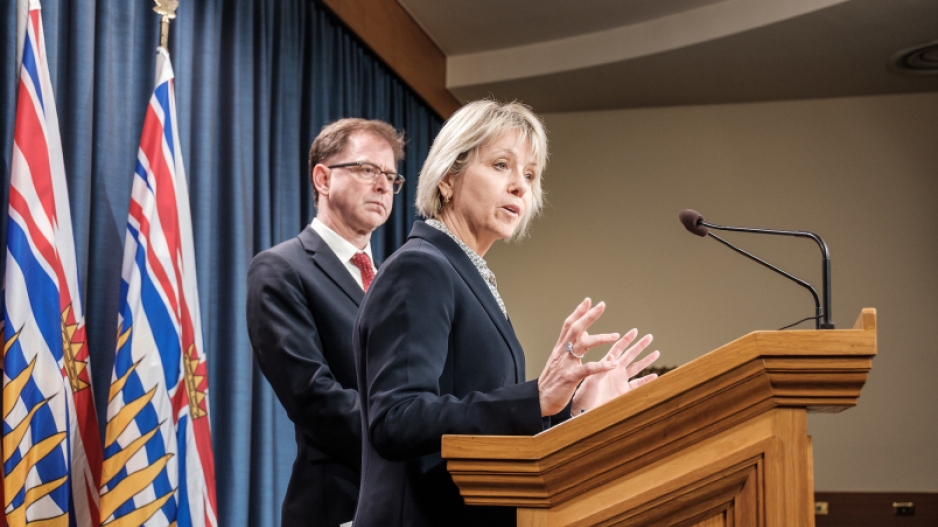The end of COVID-19 restrictions that was forecast to come next month is no longer likely given the current rate of cases around the province, especially in Interior Health.
Dr. Bonnie Henry, provincial health officer, said Sept. 7 was the earliest date that the final tier of COVID-19 restrictions would lift, but “likely … we won’t be seeing loosening of restrictions in the near future. In the last couple of weeks, things have changed quite dramatically.”
On Friday, the province reported 663 new cases of COVID-19, including 54 in Island Health. There are now 6,345 active cases —391 in Island Health — including 129 people in hospital, of whom 59 are in intensive care. The province reported one new death, in Fraser Health, and 11 active outbreaks in long-term care and assisted or independent living.
In reaction to a steady spike in COVID-19 cases in Interior Health, the province announced regional restrictions will expand to the entire health authority including a mask mandate for indoor public spaces and a limit on outdoor and indoor gatherings.
Two weeks ago, restrictions were brought in for the Central Okanagan in the Interior Health, but a steady rate of COVID-19 infections in mostly unvaccinated people — despite an increase in vaccinations — prompted the province to expand measures to curb transmissions to the entire health authority on Friday.
Masks will now be mandatory in all indoor public spaces for people 12 and older in Interior Health. High-intensity indoor fitness classes are suspended, indoor low-intensity fitness classes are limited to a maximum of 10 people, and outdoor group exercise classes are limited to 50 people.
As of Monday, indoor personal gatherings will be limited to 10 guests or one other household. In a vacation rental, the limit is five guests. Outdoor personal gatherings — such as birthday parties and backyard barbecues — will be limited to no more than 50 people. Organized gatherings such as weddings, funerals and seated events will be limited to no more than 50 people indoors and 100 outdoors. People are asked to avoid non-essential travel to and from the Interior regardless of their immunization status.
B.C. Health Minister Adrian Dix said the intention is “to get us back to a more stable and normal state with respect to transmission as soon as we possible can.”
The Interior is not only tackling a steady rate of new COVID-19 infections, but also the displacement of communities amid a volatile wildfire season.
As a result, health-care resources are strained in a number of communities in Interior Health, including Vernon, Nelson, Kamloops and Keremeos and the Thompson-Cariboo-Shuswap areas.
Henry said: “We realized that we really needed to take a regional approach that accounted for the fact that people are being displaced and are moving across and within the Interior, and that is one of the driving factors with what we’re seeing in increased cases.
“We understand this news will be disheartening for many in this area. We’re not only living with the challenges of the pandemic, but also with the challenges of wildfires and smoke.”
Vaccination rates in Nelson and Creston have increased but not enough, said Dix, who noted that the immunization rate remains at 72 per cent in Nelson and 65 per cent in Creston and “it has to be higher.”
There will be significant things people throughout the province will not be permitted to do going forward if they are not vaccinated, he said.
On Friday, the province reported 74 per cent of people age 12 and older are fully vaccinated with two shots.
“Now, more than ever, it’s critical for people to roll up their sleeves and get your vaccines,” said Henry.
“The way that we protect those who cannot get immunized, like children under the age of 12, the way we protect those people whose immune systems don’t respond as well to vaccine is by all of us being protected.”



